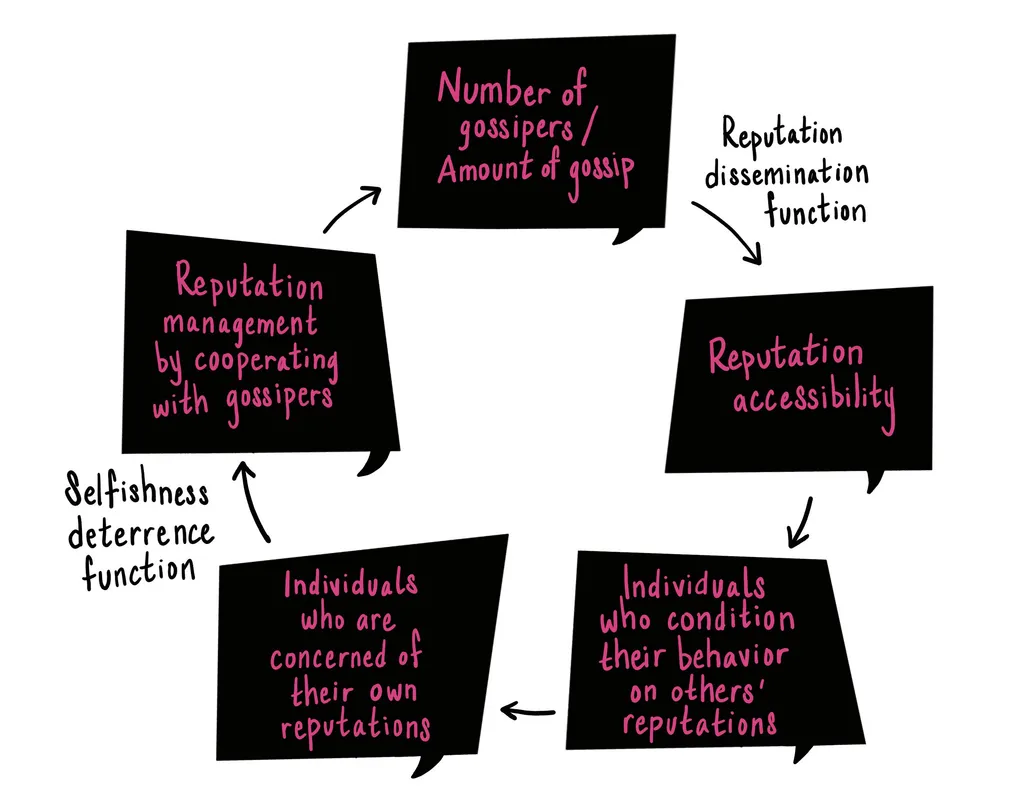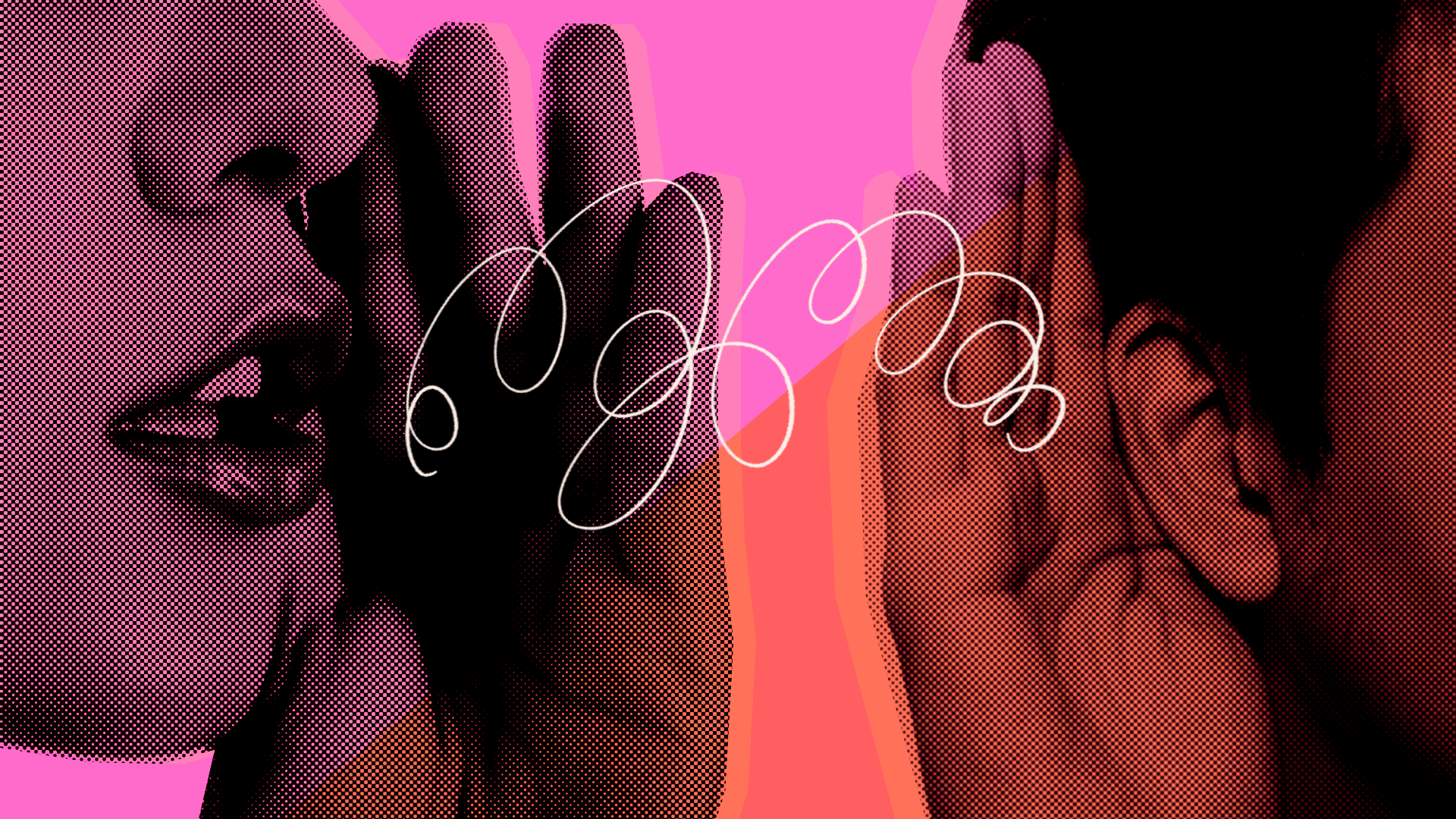- February 22, 2024
- By Emily C. Nunez
Rumormongers, blabbermouths, busybodies—no matter what you call them, gossipers get a bad rap. But new theoretical research conducted by University of Maryland and Stanford University researchers argues that gossipers—defined as those who exchange personal information about absent third parties—aren’t all that bad. In fact, they might even boost levels of cooperation within social circles.
The study, published Tuesday in Proceedings of the National Academy of Sciences, used a computer simulation of social interaction to show that gossip is good at disseminating actionable information about people’s reputations.
“When people are interested in knowing if someone is a good person to interact with, if they can get information from gossiping—assuming the information is honest—that can be a very useful thing to have,” said study co-author Dana Nau, a retired professor in UMD’s Department of Computer Science and Institute for Systems Research.
The researchers used the computer simulation to explore a long-standing mystery in social psychology: How did gossiping evolve into a pastime that transcends gender, age, culture and socioeconomic background?
“One previous study shows that, on average, a person spends an hour per day talking about others, so this takes a lot of time out of our daily life,” said first author Xinyue Pan M.S. ’21, Ph.D. ’23, who published part of this research in her psychology master’s thesis. “That’s why it's important to study it.”
Earlier theories suggested that gossip can bond large groups of people and foster cooperation, but did not explain what individual gossipers would gain from these interactions, or why recipients were so willing to lend an ear.
“This has been a real puzzle,” said study co-author Michele Gelfand, a professor at Stanford Business School and a professor emeritus in UMD’s Department of Psychology. “It’s unclear why gossiping, which requires considerable time and energy, evolved as an adaptive strategy at all.”
To better understand the complex webs of gossip, the research team used an evolutionary game theory model that mimics human decision-making to watch how their agents, or virtual study subjects, interacted with each other and altered their strategies to receive rewards.

In this case, the researchers wanted to find out whether agents would use gossip to protect themselves or to exploit others. Agents could cooperate with gossipers or defect; they could become gossipers themselves; and they could change their strategies after observing the consequences or rewards of other agents’ decisions. By the end of the simulation, 90% of the agents had become gossipers.
The researchers argued that people are more likely to cooperate in the presence of a known gossiper because they want to protect their own reputation and avoid falling victim to the rumor mill. For gossipers, receiving another person’s cooperation can be a reward in itself.
“If other people are going to be on their best behavior because they know that you gossip, then they're more likely to cooperate with you on things,” Nau explained. “The fact that you gossip ends up providing a benefit to you as a gossiper. That then inspires others to gossip because they can see that it provides a reward.”
Thanks to their ability to influence the behavior of others and encourage cooperation, gossipers have an “evolutionary advantage” that perpetuates the cycle of gossip and provides a useful service to listeners. And alhough gossip has a negative connotation, Pan stressed that the information that’s shared can be complimentary. Regardless of its content, gossip has a useful function.
“Positive and negative gossip are both important because gossip plays an important role in sharing information about people’s reputations,” said Pan, now an assistant professor at The Chinese University of Hong Kong, Shenzhen. “Once people have this information, cooperative people can find other good people to cooperate with, and this is actually beneficial for the group. So gossiping is not always a bad thing. It can be a positive thing.”
The fourth co-author is Vincent Hsiao ’18, Ph.D. ’24, Nau's former student and now a research scientist at the U.S. Naval Research Laboratory.
Nau acknowledged that the study does not encompass the full scope of human complexity and is not a substitute for behavioral studies. However, computer simulations can yield new theories that inspire follow-up research involving human subjects.
“People are very complicated and we can’t come up with a simulation that does everything that people do, nor would we want to,” Nau said. “Since it’s an oversimplification, you can’t say conclusively that this is how people behave, but you can develop insights. Those can then lead to scientific hypotheses that you can try to investigate through studies that involve human participants.”
The researchers hope to pursue a follow-up study to test one of their simulation’s predictions on human participants: the idea that gossip is effective when people don’t have other methods of gathering information about people’s reputations.
“If we can come up with hypotheses and verify the predictions of those models on human studies, then that’s what makes this kind of thing useful,” Nau said.
